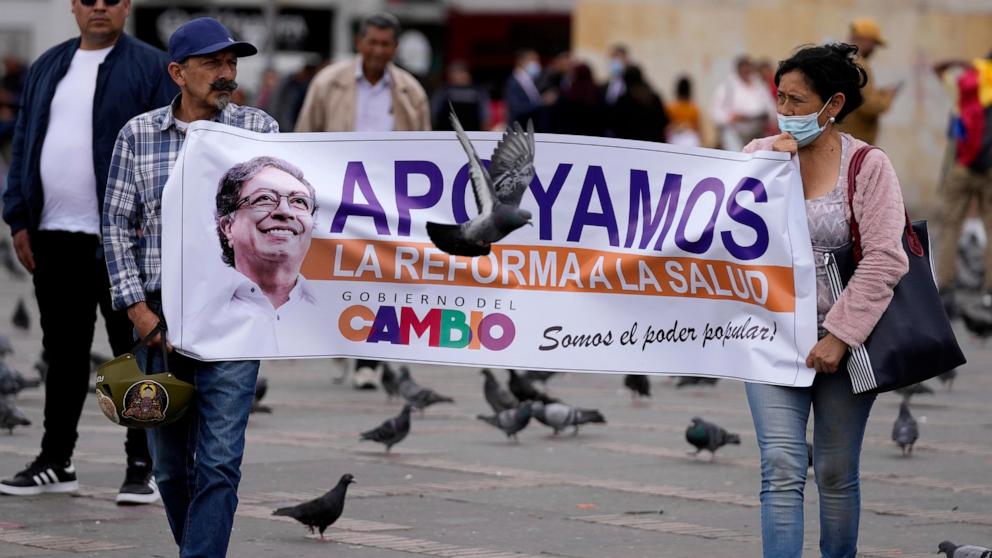Colombian insurer Sura has announced it will withdraw from the country's health system because the funding it receives from the Colombian government to manage its more than 5 million patients is not enough to cover growing costs.
BOGOTA, Colombia — Colombian insurer Sura said Tuesday it will withdraw from the country's health care system because the funding it receives from the Colombian government to manage its more than 5 million patients is not enough to cover growing costs.
Opposition leaders deplored the company's decision and accused Colombia's first leftist government of trying to drive private insurers out of the health market in order to force people to use public insurers.
Some politicians also hinted at possible protests in the coming days against recent steps by the government of President Gustavo Petro that have put the health system under increasing state control.
“The crisis in Surat is a crisis in our country,” influential former president Alvaro Uribe wrote on his X-account. “I hope that there will be widespread action against the government's decisions that are destroying the health sector.”
Under Colombia's current health care system, the government sets health insurance rates using a formula that depends heavily on each citizen's monthly income.
Monthly premiums are deposited in a government-run fund, which is then distributed to insurance companies, who manage patients and pay hospitals and other health care providers to achieve universal coverage.
But Colombians file thousands of complaints each year, accusing insurers of taking too long to approve surgeries and other medical expenses, and sometimes denying life-saving treatments.
Hospitals also complain about growing debts to insurers, which have skyrocketed during the pandemic and now stand at $1.5 billion.
Petro says these problems can be solved by removing private insurance companies from the system and replacing them with a government-run agency that would manage patients across the country and make payments directly to hospitals.
But a bill needed to reform Colombia's health care system was rejected by the Colombian Congress over concerns that Petro's reforms would give government bureaucrats too much power over health spending and could lead to mismanagement of resources by a government that lacks the manpower and expertise to manage millions of health insurance accounts.
Government critics say the administration is now trying to force through de facto reforms by ignoring opposition in Congress, cutting off funding to private insurers and making other decisions that will make it impossible for them to operate in Colombia.
In January, Colombia's Ministry of Health increased the annual commission it pays to insurers by 12 percent, despite warnings that insurers would need to raise these payments by at least 15 percent to stay in business.
Then in April, the government intervened against two major insurance companies for failing to meet financial reserve requirements set by the health regulator.
Sergio Guzman, a political risk analyst in Bogota, estimates that the Colombian government currently controls, directly or indirectly, about half of the country's health insurance accounts. He said that figure would increase significantly if Sura were to withdraw from the health system entirely and its 5 million affiliates were transferred to a state-run insurer.
“The government will go to any length to implement the most radical parts of the reform plan,” Guzman said, “no matter what collateral damage it causes.”
Jorge Restrepo, an economist at Bogota's Javeriana University, said Sula's withdrawal from Colombia's health system puts thousands of jobs at risk. Patients' medical records would also have to be transferred to another insurer, a potentially complicated process.
“The ball is now in the government's hands, and their actions will shape the future of health care in Colombia,” Restrepo said.


